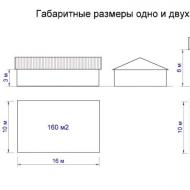
Health insurance against critical diseases. Critical diseases: it's time to be treated. Cost and amount of insurance payments
"Critical disease is a disease that significantly affecting a lifestyle, having a unambiguous definition, an objective and confirmed diagnosis, as well as detailed statistics," explains the President, Chairman of the Board of the MEDIXPRESS, Natalia Shumilov. In general, the concept of critical diseases came from personal insurance. The practice of the market went along the way to expand the interpretation. Some companies currently up to 30 positions refer to the category of critical diseases, including any diseases, irreformed human life. In most cases, the so-called critical diseases are excluded from the insurance coverage on the PMS policy, but not always. "Unlike many other companies, MedExpress traditionally includes a wider list of medical services and diseases in DMS insurance programs. We pay under the DMS treatment of cancer, operations on heart vessels. We are not limited to the dates of stay in the hospital, the number of hospitalization, diagnostic and medical services in the presence of medical testimony, "says Natalia Shumilov.
DMS suggests the organization of treatment at the expense of the insurance company (often with different kind of restrictions and limits), and insurance is precisely from critical diseases - a fixed payment on the fact of the diagnosis of those diseases that are usually excluded from DMS. These are different types of insurance, and therefore the perfect version for a person - to have both polishes, Natalia Shumilova believes.
In relation to the corporate DMS, insurers began to include in the policy already and oncology - when surgery, radiotherapy, isotopic treatment are paid at primary identification. It is worth it, for example, in "MedExpress" only 600 rubles per person (for teams from 100 to 500 people), but the decision on insurance remains for the employer.
Voluntarily and alone
At the same time, health is the basic value of a person, and shifting responsibility for their lives on the employer is not entirely correct. And if earlier even personal insurance options had an impressive list of restrictions and exceptions, now the situation is changing, insurance companies create new products. Experts assess their potential high enough.
As an example, an innovative product for individuals "Manage Health!" From VTB Insurance, which started in 2014 and providing financial protection in identifying a number of critical diseases. The key distinguishing feature of the policy is insurance for the case of diagnosing oncological diseases. Every built-in product "Manage Health!" It receives a warranty of a free routing service and accompaniment at all stages and in all aspects of treatment - from rechecked diagnosis to clinic selection, consultation at the rate of treatment, legal and psychological support and other; insurance payments from 750 thousand rubles (in the first year) and up to 2.4 million rubles (for the tenth of insurance); Expansion of protection for the list of "Critical Diseases" (stroke, myocardial infarction, paralysis, terminal renal failure, the need for an aortocortonary shunting or organ transplantation).
The cost of an individual policy begins from 5 thousand 590 rubles per year for adults and from 2 thousand 990 rubles per year for children. Family polis (two adults and three minors) will cost 11 thousand 180 rubles per year. The insurance contract is concluded without prior medical examination or other procedures, on the basis of signing the Declaration on Health. However, to protect against unscrupulous policyholders, the policy begins six months after the conclusion of the contract. There are age limits and a list of diseases and conditions in which faces are not accepted for insurance. Duration of insurance - from three to ten years. This insurance program was the expertise of the Association of Oncologists of Russia, the FSBI "NII NII named after N.N. Petrova »Ministry of Health of Russia, FSBI" Moscow Research Institute of Name P.A. Herzen »Ministry of Health of Russia, the Federal Medical and Biological Agency.
According to the director of the VTB Insurance branch in St. Petersburg, Kirill Pavlova, the demand for this service is already significant and the number of policies sold is calculated by thousands.
Ambulance
The big plus policy of personal insurance against critical cases compared to the Voluntary Medical Insurance Policy - even in addition to typical exceptions in the DMS, it is that a person gets freedom of disposal of money and the freedom to choose a medical institution.
"Among the private clinics, interest in the treatment of critical diseases in general and oncology in particular is growing, we have the relevant licenses. At the same time, the larger insurance products are developing, the better for the clinic - we are ready to respond quickly to incoming requests, "the general director notes, the head physician of American Medical Clinic & Hospital (American medical clinic, a large polyclinic and hospital complex, providing medical services in 39 directions ) Efim Danilevich.
Cardiovascular diseases have their own specifics regardless of the policy. When interacting with some accredited government agencies, even a first-class insurance and assistan service is not able to help the patient. In the case of heart disease, not only the clock is critical, but even minutes. "The case of our practice: we arrived at the patient and diagnosed for 15 minutes. Then everything solved time. In order for a person to urgently accepted in the nearest medical institution, a call to the chief doctor was required. But even in this case, the patient's help was provided only in four hours, "says CEO, Chief Physician Coris Assistance (Assistan Company - Private Ambulance, Traumagunk) Lion Averbach. "Sometimes it is easier to take a patient in Finland than to arrange it in the St. Petersburg hospital. Actually, a few years ago, sometimes we did it (by the way, on the Coris car), and it saved the lives of people, "recalls the Marketing Director of ASK Petersburg Tatyana Dolinin.
By the way, a number of insurers offer special programs (or additional options for standard programs) treatment abroad. Thus, the product "Scope of Health" from the company "Reso-Warranty", developed jointly with Sphera Global Gestión Médica International SL, provides the following services: a second medical opinion (written conclusion recognized in its field of an international licensed doctor - a specialist in such diseases, like cancer, stroke, heart attack, hepatitis, diseases of the cardiovascular system, congenital malformations, etc.); medical consulting and orientation on various pathologies, diagnosis and treatment with the use of remote access and telemedicine; organization of inpatient treatment (without paying the cost of treatment) at a fixed value insured against possible increase; Service services (invitation, transfer, accommodation at the hotel, accompaniment in the clinic with a translator, monitoring stay in the hospital). As explained by the deputy head of the Directorate of the North-Western Regional Center "Reso-Guarantees" Tatyana Savateeva, the program implies several levels of coverage and service.
Tatiana Dolinina points to another aspect - the financial well-being of the family in case the misfortune touched upon any of the working family members. For this case, there are also special products that suggest the payment on the fact of an accident occurring, which will serve as a lot of financial support. So, the policy from the company "ASK" "Close people" protects all family members from accidents with any of them. At the same time, the family is understood as close people who do not necessarily live on one living space, and civil marriages are also taken into account. The insurance premium is minimal (from 1.2 thousand rubles), the total insurance amount at all - within 500 thousand rubles. If someone from family members get injury or disability as a result of this injury, then "ASK" will pay money depending on the severity of the injury. If the injury is serious and man hit the hospital for a long time, the family will receive additional money - 0.2% of the sum insured for every day of hospitalization.
Thought strategically
The probability of cancer cure during early diagnosis reaches 90%. But more than 40% of diagnoses in our country are already in the later stages. And the diseases of the cardiovascular system are the main threat of life and health of people around the world. Mandatory medstation works far from the best way. In the current economic situation, the sudden identification of serious diseases can hit the family by the budget or simply make it impossible to carry out expensive treatment. For such cases, the policy is needed. By the way, in some cases, the policy implies a "voluntary-forced" annual examination, which will eliminate the disease at an early stage.
If we talk about the paths of prevention and minimization of treatment costs, then the Advisor to Personal Insurance of the Territorial Director of OJSC "SOGAZ" on the North-West Federal District of Medical Sciences Igor Akulin argues strategically. First of all, the overall health care leaves much to be desired - the prevention of disease is practically absent, which ultimately leads to the appearance of a bouquet of disease. The practice of tradecores and preventive events would be very by the way. Also, Igor Akulin believes, it would make sense in clinics at the level of the state or local city program to create the institution of general practitioners. By the way, in the West, the person, bypassing a physician of general practice, will not fall at a reception to a narrow specialist. Igor Aculin recalls a very indicative experiment, neglected when working in the period of work in the health committee: three general practitioners in a particular medical institution covered 85% of appeals, and only 15% of appeals demanded further consultation of narrow-profile specialists. But impressive results with the continuation of the experiment, and even more so - in its expansion, they would require as a result of the reduction of such doctors, while the domestic training system is sharpened just for the release of a large number of narrow-profile specialists. The project was minimized. Currently, the mentality of the Russian patient is such that he certainly wants to get immediately to a narrow specialist, considering a doctor of general practice or a family doctor by somehow the "Naxystalist", not understanding the objective purpose of the primary consultation in reality.
St. Petersburg
On average for the market
Classical scroll critical diseases by Ns.:
- stroke;
- heart attack;
- renal failure;
- transplantation of the main organs;
- aorticoronary artery shunting.
Advanced scroll critical diseases by Ns.:
- benign brain tumors;
- other operations on the heart and aorta;
- multiple sclerosis;
- paralysis;
- loss of limbs;
- etc., up to 30 diseases.
Classical scroll critical diseases, excluded of program DMS.:
- oncology;
- surgical treatment of heart attacks and strokes;
- benign brain tumors.
Restrictions in programs DMS. by treatment non-exclusive critical diseases:
- on insurance sums on critical diseases in general;
- by duration and number of hospitalizations;
- drug provision;
- on rehabilitation treatment;
- on the use of modern high-tech types of treatment and diagnostics, including surgical;
- on payment of consumables;
- further dispensary observation and repeated courses of treatment.
Appendix No. 1.
to the technical assignment
from "_____" ______________ 2013
SCROLL
Critical diseases
Critical diseases -diseases that significantly violate the life structure and worsening the quality of life of the insured person leading to disability and characterized by an extremely high mortality rate.
Oncological diseases, The presence of one or more malignant tumors, including: leukemia (except chronic lymphocytic leukemia), malignant tumor of skin and lymphoma, Hodgkin's disease characterized by uncontrolled tumor growth, metastasis, introducing into healthy tissues. The diagnosis must be confirmed by a qualified physician (oncologist) on the basis of histological research. Exceptions: tumors with malignant changes in carcinoma in situ (including 1,2,3 stages dysplasis) or histologically described as precancerous, malignant tumors of skin and melanoma, the maximum thickness of which, in accordance with histological conclusion, less than 1.5 mm or which is not exceeds the level of development T3N (0) M (0) according to the classification of TNM, any other tumor, not penetrating into the propacular layer, all hyperkeratoses or basal cell carcinomas of the skin, all epithelial-cell skin cancers in the absence of germination to other organs, sarcoma capos and Other tumors associated with HIV infection or AIDS, the prostate cancer of stage T1 (including T1A, T1B) according to the classification of TNM, malignant tumors in the presence of HIV infection and / or AIDS.
Surgical treatment of coronary arteries. Stenosis or occlusion of coronary arteries, requiring direct operational intervention on the heart. Exceptions: Balloon angioplasty (dilatation) coronary arteries, laparoscopic surgical manipulations The use of the laser, other non-surgical procedures. The diagnosis should be confirmed by a qualified physician (cardiac surgery).
Myocardial infarction. Inside the necrosis of the part of the heart muscle due to the absolute or relative failure of coronary blood flow. The diagnosis and data of the surveys must be confirmed by a qualified physician (cardiologist). The definition is excluded: Myocardial infarction without changing the ST segment and with an increase in troponin indicators I or T in the blood; Other sharp coronary syndromes.
Renal failure. The terminal stage of an irreversible chronic violation of the function of both kidneys, leading to: an increase in the level of creatinine in the blood to 7-10 mg%, violation of the removal of nitrogenous exchange products, impaired water-salt, osmotic, acid-alkaline equilibrium, arterial hypertension, which requires: permanent Hemodialysis, peritoneal dialysis or transplantation of donor kidney. The diagnosis must be confirmed by a qualified physician (nephrologist).
Stroke. Any cerebrovascular changes that can cause neurological symptoms with a duration of more than 24 hours, and include a doniment of the brain tissue, hemorrhage and embolism. The diagnosis should be confirmed by the presence of typical clinical symptoms and data of computer or magneto-resonant tomography of the brain. The duration of neurological symptoms should be at least 3 months. Exceptions: cerebral disorders caused by migraine, cerebral disorders due to injury or hypoxia, vascular diseases affecting eye or eye nerve, transient brainwater disorders, lasting less than 24 hours, bouts of vertebobasilar ischemia.
Transplantation of vital organs. Transplantation as a recipient of the transplantation of heart, lung, liver, kidney, pancreas (excluding transplantation of only Langerhans islets), bone marrow, small intestine. Exceptions: organ donation, transplantation of other organs, parts of organs or any tissue. The need to apply transplantation must be confirmed by a qualified physician.
Surgical treatment of aortic diseases. Direct carrying out surgical intervention in order to treat chronic aorta disease through excision and replacement of the defective part of the aorta with a transplant. Under the term aorta, in this particular case, it is customary to understand its chest and abdominal parts, aortic branches.
Transplanting valves of heart. Surgical replacement of one or more affected heart valves with an artificial valve. The definition includes replacing the aortic, mitral, tricuptic or pulmonary (pulmonary artery valves) of the heart valves by their artificial counterparts due to the development of stenosis / failure or combination of these states. Coverage is excluded: Valvollotomy, valvaloplasty and other types of treatment conducted without transplantation (replacement) of valves.
Multiple sclerosis.The final diagnosis of "multiple sclerosis", established by a neurologist in a certified medical institution. As confirmation of the diagnosis, the presence of typical symptoms of demyelinization and disorders of motor and sensory functions is envisaged, along with typical signs of the disease in magnetic resonance imaging. In the insured must be present neurological violations, manifested continuously for a minimum of six months, or the insured must transfer at least two documented exacerbations of this kind of violations (which took place at least one month before the application), or at least , one documented episode of the exacerbation of this kind of disorders together with the presence of characteristic changes in the cerebrospinal fluid, along with specific damage recorded during magneto-resonance imaging.
Paralysis.Full and constant loss of the motor function of two or more limbs due to paralysis due to an accident or disease of the spinal cord. The diagnosis should be confirmed by an experimental doctor - a neuropathologist according to the results of six-month observation of the insured since the initial diagnosis. The exception of the coating is Guienen-Barre syndrome.
Blindness (loss of vision).Full, permanent and irreversible loss of vision on both eyes due to the suffering disease or an accident. The diagnosis must be confirmed by a specialist (ophthalmologist) in the presence of results of special surveys.
| INSURER: | Insured: |
|
| __________________/_____________/ | _____________________/ / |
|
Insurance in case of critical diseases is a relatively new product for Russia. Life insurers are developing and offered program data over the past 3-4 years. Now there are more than a dozen such products on the market from different insurance companies. Sales on this type of insurance rapidly grow. For example, our company began selling the insurance program from critical diseases in the third quarter of 2014 and since then has entered into more than 80 thousand contracts. Given the effect of a low base, the number of concluded contracts increases by dozens of percent of year per year.
As in the insurance of life as a whole, the sales of insurance programs in case of critical diseases depends on the amount of supply. The larger the company of agents (individuals, banks, brokers), which may briefly and clearly explain the client the essence, the value and task of the product, the higher the demand will be. Despite the spread of cancer, while people are rarely independently thinking about protection against these risks.
Most of the insurance programs in case of critical diseases are sold in a boxed product format, which eliminates the possibility of medical examination and accounting for individual needs. As a rule, contact with the client occurs through banks, and the seller has only a few minutes to tell about the program and conclude an agreement on the basis of a signed questionnaire - a declaration of health status. However, with the development of the market, the appearance of customized products is expected to appear, and those customers who want to choose an individual risk set at an optimal price will be able to do this by passing medical examination.
At the moment, for help for such programs, an average of 1 client for 2500 insured are appeared. With the growth of product distribution, the frequency of appeals will increase. This must be taken into account when indexing tariffs, as well as the change in the cost of treatment and currency exchange rate, especially if the program provides for an appeal to overseas medicine.
Despite the growing popularity of the insurance against critical diseases, in Russia the development of this segment is facing a number of obstacles that need to be gradually overcome to maintain high growth rates of these products.
- Low Insurance Culture of Russians. Many continue to believe that the state should solve any health problems, and ignore the fact that free medicine according to the MLAM model is not always able to provide adequate treatment. Therefore, every year throughout Russia has events to increase the level of financial literacy of the population, which representatives of financial organizations (banks, insurance companies, etc.) are involved as experts. Financial consultants of the agent network of life insurers are trained, becoming certified tutors and conduct seminars at such events. Every year, hundreds of thousands of citizens from all over Russia take part in them, and participants in the online format are calculated by millions. Such events will allow insurers of life more often publicly talk about insurance against critical diseases and popularize this product.
- The ignorance of people about the insurance programs in case of critical diseases. Most Russians still do not even know that they have access to such products. The volume and variety of proposals increases, but the qualitative increase in the coverage of insurers can provide using different communication channels, including with the help of the media. Separate attention should be paid to work in social networks. On the pages of companies, sectoral associations, public organizations engaged in financial education, it is important to raise topical themes for people for which they can easily and quickly give feedback: to express opinions, ask questions, share problems and expectations. Discussion on such communication sites on the topic of cancer will allow insurers to offer an audience a solution to the problem - tell about the insurance programs in case of critical diseases.
- Weak corporate insurance development. Insurance in case of critical diseases can seriously strengthen this segment. However, while at most Russian enterprises, insurance protection of employees perceive as an additional financial burden. How to convey to business importance of corporate insurance, including in case of critical diseases of employees? Verified method - through improving financial literacy. Hundreds of events were held in various organizations, after which many companies were asked on a regular basis to engage in the financial literacy of their employees. Enlightenment team, enlighten and guide, which is thinking about the benefits of corporate insurance programs for motivation and human development.
A few more decades ago, the doctor's diagnosis is diagnosed with! " sounded like a death sentence. But time goes, and science does not stand still. To date, doctors not only learned how to help cancer and live with cancer, but also heal them.
Cancer is easily curable in an early stage!
In Russia, there is a whole program assistance for sick cancer, which the state annually allocates billions of rubles. Patients with cancer relies free treatment, free medicines ...
But the question is to pass through the bureaucratic apparatus and prove to medical officials their right to receive this.
Unfortunately, such "evidence" goes the most valuable time!
After all, if you do not begin treatment of the disease immediately after it is detected - it develops and gradually goes to another, more severe stage.
In Russia, almost every third fearing cancer is dying within one year, after he learned about his diagnosis!
In Western countries - the survival is much higher ... and the point is not there in technology.
Unfortunately, there are no clear and clear criteria that will be 100% of the fact that one or another man will get sick or vice versa, never sick with cancer. Sports, the use of antioxidants - reduces the risk of the disease, but does not remove it at all.
And the only reliable protection from this is a financial "pillow", which will help start treatment immediately, if such a diagnosis is supplied.
Insurance programs from critical diseases are such a "financial pillow", because the insured, after contacting the insurance company (after performing the primary diagnosis), receives the payment of a large amount of money within 10-20 business days.
In addition to oncology, a list of critical diseases usually come Infarction, STROKE, BLINDNESS, Acute renal failure, The need for transplantology of vital organs.
The cost of the policy depends on the age and gender of the insured, as well as from the selected sum insured. Naturally, the younger - the topics are cheaper. So, for example, according to one of the programs, the insurance of a minor child is 1,500,000 rubles, it will cost from 2580 rubles a year, while the 47-year-old man pays for this program 30090 rubles.
In more detail with these programs you can read.
P.S. Do not think "A, I will not have anything like that!". Believe that even 500,000 rubles (cost of insurance from 860 to 15710 rubles a year) paid within 20 days after diagnosis, can help you return your health.
Right now do. And ... take care of yourself! After all, you are the most valuable thing you have.

Sberbank every year offers its customers new insurance products so that everyone felt protected and confident. No one is dominated over the disease, so it is important to take preventive measures and to diagnose as often as possible. So, you can easily get rid of unpleasant symptoms and have time to reveal a terrible disease in the initial stages.
How does the policy work?
The first and most important condition is the possible age of the insured in range from 18 to 50 years.
If you go to the doctor, having this Sberbank policy, you can be calm. If you detect a heart attack, stroke or oncology, the cost of diagnostics will be paid, as well as subsequent treatment.
If necessary, you can take advantage of the "Second Expert Opinion" option, where a professional doctor once again examines you.
Cost and amount of insurance payments
If you decide to arrange insurance against critical diseases, it is necessary to clarify the cost of the contract. It directly depends on the age of the insured person and begins from 1,500 rubles.
As for payments, Sberbank represents two options to choose from:
- Total amount - 1.5 million or 2.5 million rubles
- Identification of heart attack or stroke - 500 000 rubles in both cases
- Identification of malignant tumor, oncology - 1 million or 2 million
If you choose one of the options, the price changes accordingly, towards the size of the insurance payment.
Options for insurance programs in rubles
Terms of action Polis
After you have issued a policy on the website or in the Sberbank branch, a certain period of application processing must pass. Insurance begins to act 5 working days after signing the contract and payment.
You can use the next six months only one option - "Second Medical Opinion". After 6 months, the main contract is incorporated by the main contract, which is valid for another 12 months, which pays for the diagnosis and treatment of critical diseases.
Thus, the term of insurance and action of the policy is 18 months from the date of activation.
How to arrange "Insurance against Critical Diseases"?
In order to acquire this insurance policy, you can contact the nearest Sberbank branch in your city, or pass the simple design procedure on the official website. We enter the instructions for purchasing the policy in the Personal Account:
- In the insurance catalog, find the necessary program
- Fill out a small questionnaire and make your passport and personal data.
- Pay the cost of the policy of the bank card
- Get a document
The policy comes to email within a few minutes - no need to leave the house and look for the bank. All at hand, and most importantly, has equal legal force, with documents issued by a specialist in a bank.
The main thing is to diagnose the disease in time, visit qualified doctors and good clinics. Sberbank provides a "second medical opinion", which will help determine the problem and get an independent conclusion of the best doctors. The cost of the policy is small, but it does not just guarantee payments, but also protects you. Insurance will send you to excellent diagnosis and will allow critical diseases in the early stages.
















